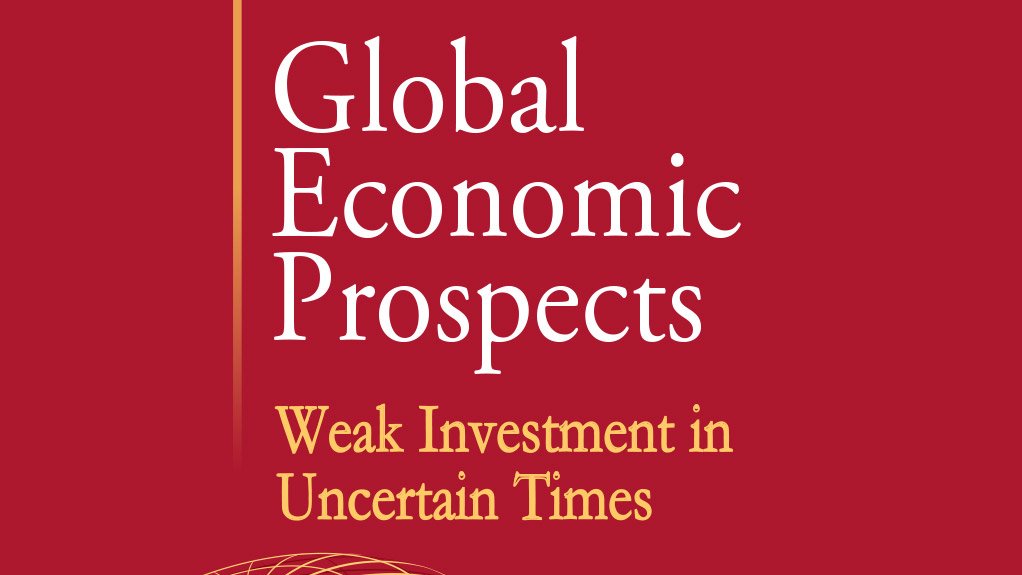- Global Economic Prospects5.35 MB
Global economic growth is forecast to accelerate moderately to 2.7 percent in 2017 after a post-crisis low last year as obstacles to activity recede among emerging market and developing economy commodity exporters, while domestic demand remains solid among emerging and developing commodity importers, the World Bank said in a report released on Tuesday.
Growth in advanced economies is expected to edge up to 1.8 percent in 2017, the World Bank’s January 2017 Global Economic Prospects report said. Fiscal stimulus in major economies—particularly in the United States—could generate faster domestic and global growth than projected, although rising trade protection could have adverse effects. Growth in emerging market and developing economies as a whole should pick up to 4.2 percent this year from 3.4 percent in the year just ended amid modestly rising commodity prices.
Nevertheless, the outlook is clouded by uncertainty about policy direction in major economies. A protracted period of uncertainty could prolong the slow growth in investment that is holding back low, middle, and high income countries.
“After years of disappointing global growth, we are encouraged to see stronger economic prospects on the horizon,” World Bank Group President Jim Yong Kim said. “Now is the time to take advantage of this momentum and increase investments in infrastructure and people. This is vital to accelerating the sustainable and inclusive economic growth required to end extreme poverty.”
The report analyzes the worrisome recent weakening of investment growth in emerging market and developing economies, which account for one-third of global GDP and about three-quarters of the world’s population and the world’s poor. Investment growth fell to 3.4 percent in 2015 from 10 percent on average in 2010, and likely declined another half percentage point last year.
Slowing investment growth is partly a correction from high pre-crisis levels, but also reflects obstacles to growth that emerging and developing economies have faced, including low oil prices (for oil exporters), slowing foreign direct investment (for commodity importers), and more broadly, private debt burdens and political risk.
“We can help governments offer the private sector more opportunities to invest with confidence that the new capital it produces can plug into the infrastructure of global connectivity,” said World Bank Chief Economist Paul Romer. “Without new streets, the private sector has no incentive to invest in the physical capital of new buildings. Without new work space connected to new living space, the billions of people who want to join the modern economy will lose the chance to invest in the human capital that comes from learning on the job.”
Emerging market and developing economy commodity exporters are expected to expand by 2.3 percent in 2017 after an almost negligible 0.3 percent pace in 2016, as commodity prices gradually recover and as Russia and Brazil resume growing after recessions.
Commodity-importing emerging market and developing economies, in contrast, should grow at 5.6 percent this year, unchanged from 2016. China is projected to continue an orderly growth slowdown to a 6.5 percent rate. However, overall prospects for emerging market and developing economies are dampened by tepid international trade, subdued investment, and weak productivity growth.
Among advanced economies, growth in the United States is expected to pick up to 2.2 percent, as manufacturing and investment growth gain traction after a weak 2016. The report looks at how proposed fiscal stimulus and other policy initiatives in the United States could spill over to the global economy.
“Because of the outsize role the United States plays in the world economy, changes in policy direction may have global ripple effects. More expansionary U.S. fiscal policies could lead to stronger growth in the United States and abroad over the near-term, but changes to trade or other policies could offset those gains,” said World Bank Development Economics Prospects Director Ayhan Kose. “Elevated policy uncertainty in major economies could also have adverse impacts on global growth.”
Report by the World Bank
EMAIL THIS ARTICLE SAVE THIS ARTICLE ARTICLE ENQUIRY
To subscribe email subscriptions@creamermedia.co.za or click here
To advertise email advertising@creamermedia.co.za or click here











